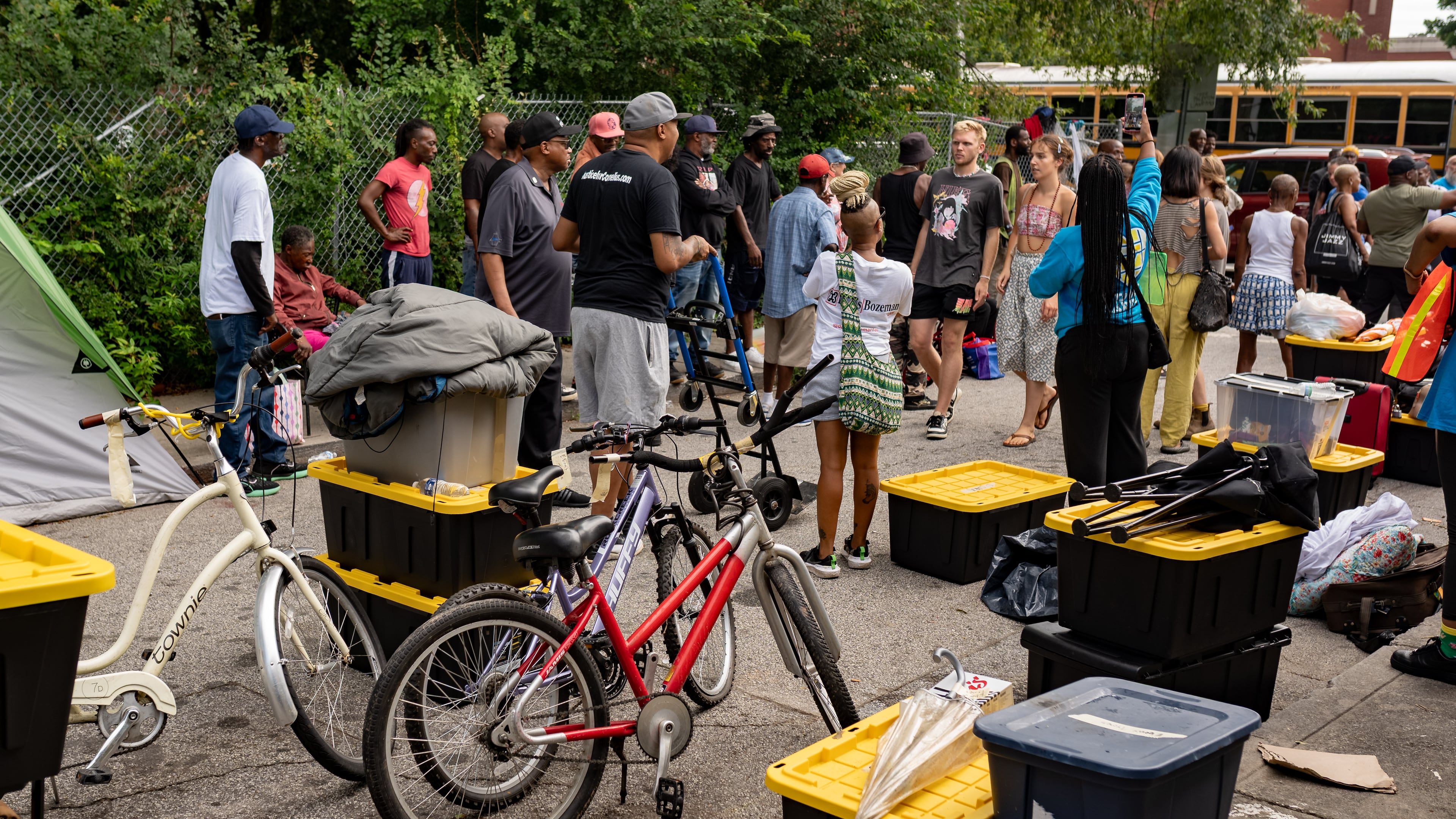Atlanta can’t be trusted on homelessness plan after Old Wheat Street eviction

On July 10, I stood on Old Wheat Street, helping unhoused residents pack their belongings as the city of Atlanta carried out a forced eviction.
It was the same site where Cornelius Taylor was crushed to death by a city construction vehicle in January.
I was there as both an activist and student researcher studying the lived experiences of unhoused people. That day, and the weeks that followed, taught me that we cannot trust the city to care for our unhoused neighbors.
What happened at Old Wheat Street is not an exception. It reflects a deeper pattern of how Atlanta treats unhoused communities, and it’s a preview of what’s to come.
Despite millions for homelessness, people are still unhoused
The sweep, led by Mayor Andre Dickens and the nonprofit Partners for Home, was framed as a milestone in a compassionate campaign to “end homelessness” downtown before the 2026 World Cup.

City leaders claim they housed all Old Wheat Street residents and are coordinating wraparound services tailored to individual needs.
In reality, the city is manipulating public perception with a narrative of success, despite repeated failures on their part. Meaningful progress resulted from the relentless efforts of grassroots organizers, not city leadership.
For months, the Justice for Cornelius Taylor Coalition and community activists stood alongside encampment residents, building trust, sharing food and friendship, and demanding more than temporary shelter.
On the day of the sweep, a bus coordinated by the Justice for Cornelius Taylor Coalition transported residents from their tents to a transitional housing facility called Welcome House. But when they arrived, 14 people were devastated to learn they were not on the list to receive housing.
This was a clear failure of the city’s inadequate outreach efforts and a blatant disregard for the dignity of unhoused people.
Despite boasting a $60 million investment to “end homelessness,” it was the community, not the city, who paid for hotel stays to keep them from being left on the street.
Two weeks later, eight residents say they remain unhoused despite open spots at Welcome House. The city and Partners for Home lack the political will and compassion to complete the administrative steps needed to house them.
Moreover, the wraparound services promised for those already in Welcome House have yet to materialize. Yet, officials want us to believe they’re committed to ending homelessness. What will happen to unhoused communities who don’t have a coalition backing them?
1996 Olympics provides a lesson for how Atlanta will move forward from here
Atlanta has long treated homelessness not as a structural failure but as a public nuisance to be hidden and criminalized.
We were the first U.S. city to build federally subsidized housing, and the first to demolish all of it.
Our history is defined by the displacement and incarceration of poor people to serve corporate interests, reinforce racially-motivated ideas of “public safety” and promote the incomplete narrative that Atlanta is a hub for economic growth — while perpetuating homelessness, gentrifying Black and brown neighborhoods and feeding the prison-industrial complex.
The reader can gain deeper context by drawing connections between the Atlanta Public Safety Training Center aka “Cop City” and the 1996 Olympics, parallels that are more relevant now than ever.
With the global spotlight approaching in 2026, the city has launched a campaign to “end unsheltered homelessness” in downtown — not out of compassion, but concern for its image.
Their current strategy — centered on encampment sweeps, poorly coordinated outreach and case management, empty slogans and unreliable nonprofit partners — is destined to fail. Not because it’s impossible to end homelessness, but because the city refuses to invest in long-term solutions: permanent supportive housing, sustained outreach and community-based care.
The eviction at Old Wheat Street, and the city’s long history of displacing unhoused communities, makes one thing clear: we cannot trust the city’s narrative. For Atlantans who want our neighbors housed with dignity — it’s time to get involved, especially as national policies grow more hostile toward unhoused people.
Seven ways to get involved and help unhoused Atlantans
Here’s how:
- Talk to your unhoused neighbors. Bring food and water and ask what they need.
- Follow and join grassroots organizers on Instagram:
- Donate to mutual aid, not just nonprofits. Funds go directly to housing, transportation, food, etc. (Direct message the accounts above to learn how.)
- Attend city meetings and actions. Show up at council hearings, public forums and news conferences. Public meeting calendar.
- Attend and present at local Neighborhood Planning Unit meetings.
- Hold elected officials and Partners for Home accountable. Email, call and demand transparency: no sweeps without guaranteed housing with wraparound services.
- Challenge the narrative. When the city celebrates “successes,” share what really happened.
Unhoused people are not political pawns. They are brilliant, creative and loving people. They are our neighbors, our friends and our family. We cannot stand by while the city attempts to discard them.
Carson Bohl is a Ph.D. student at Emory University’s Rollins School of Public Health and a community activist helping the Old Wheat Street residents transition to their new homes.


